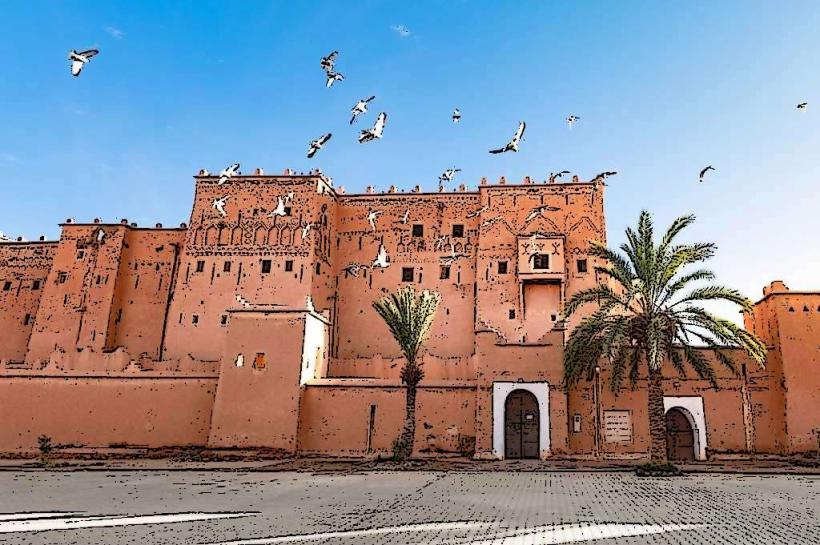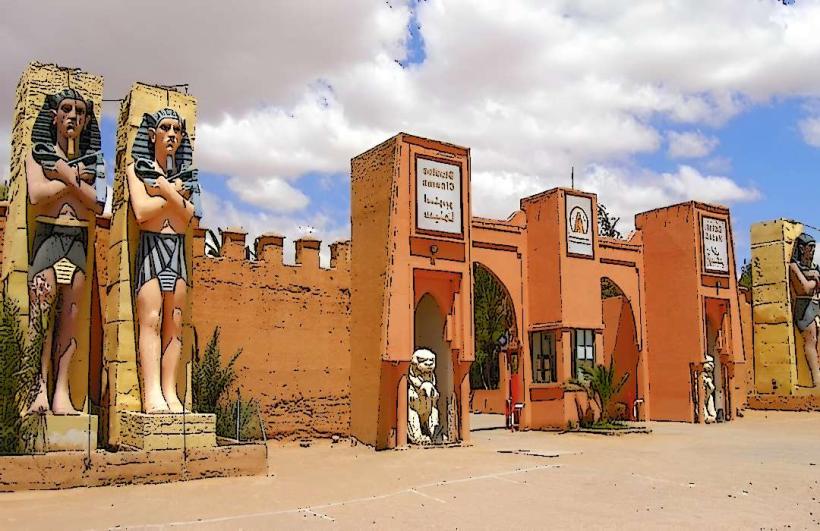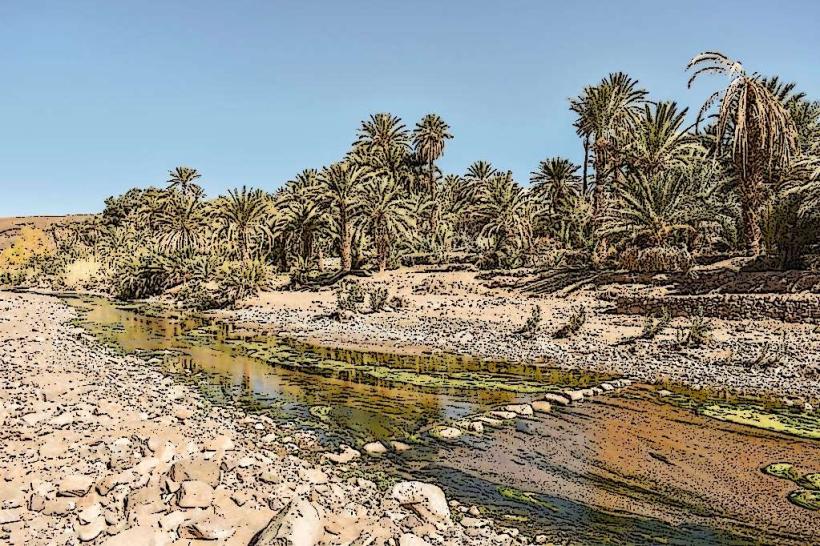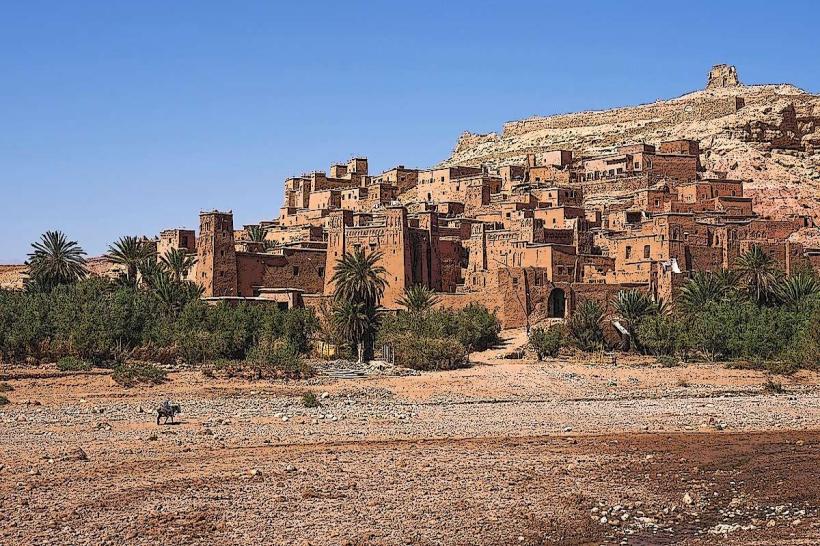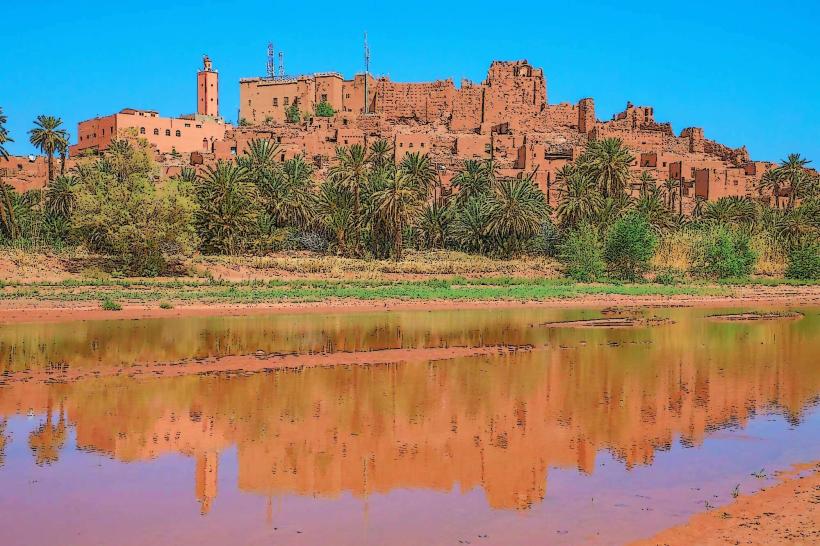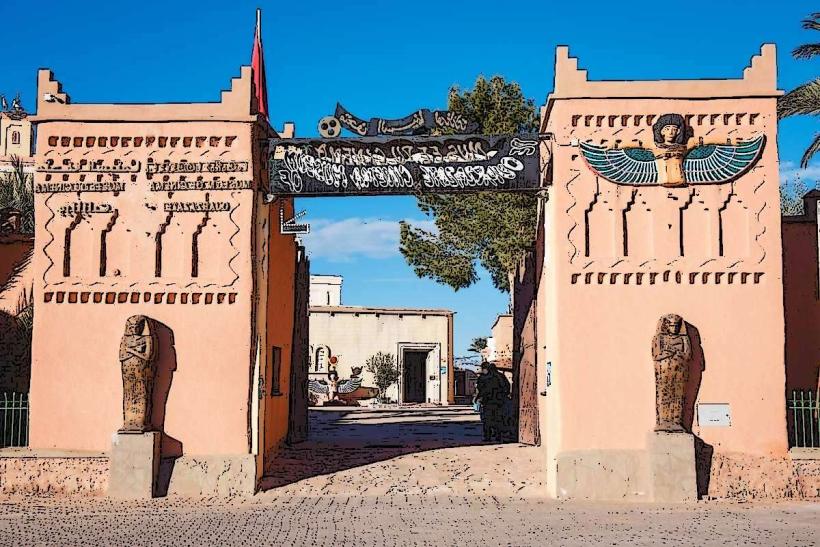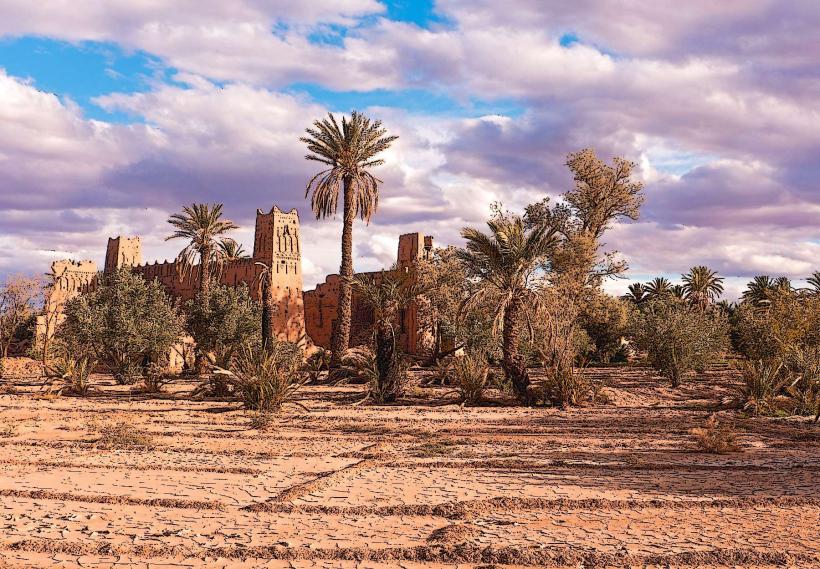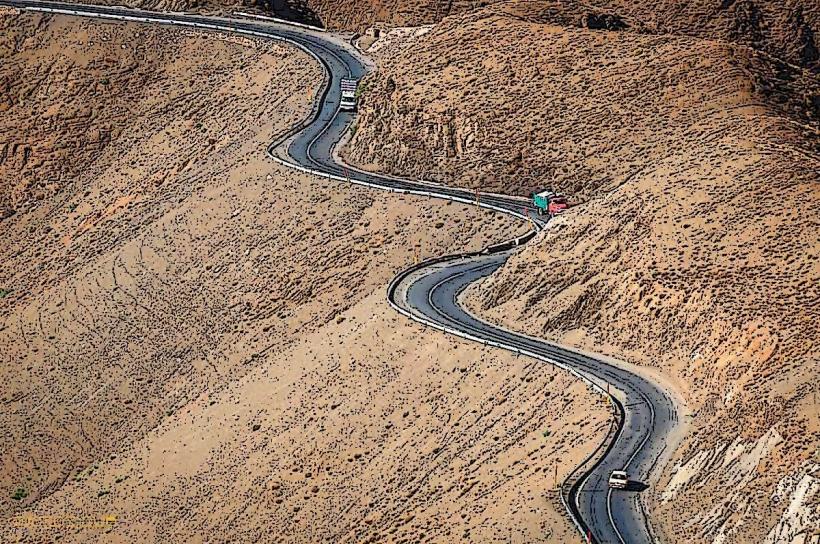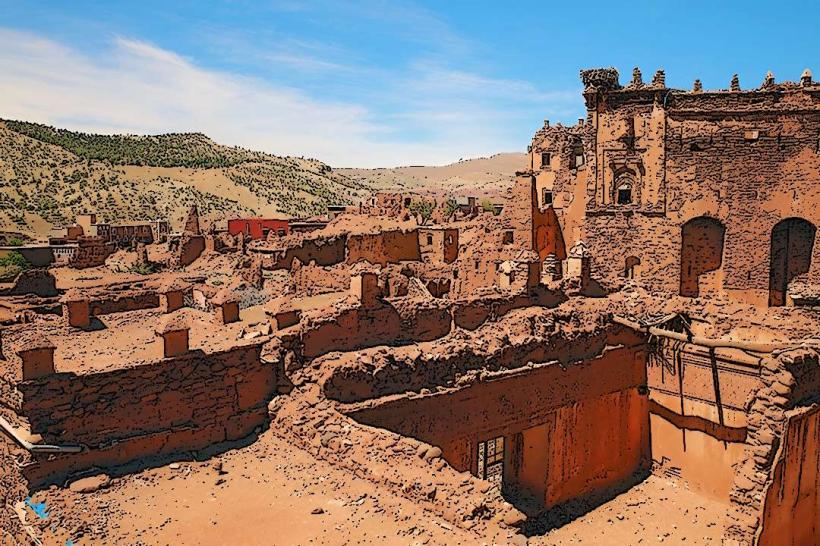Information
Landmark: Draa ValleyCity: Ouarzazate
Country: Morocco
Continent: Africa
Draa Valley, Ouarzazate, Morocco, Africa
The Draa Valley is a river valley located in southern Morocco, extending from the High Atlas Mountains towards the Sahara Desert.
It is characterized by its extensive palm groves and ancient kasbahs.
Visual Characteristics
The valley floor is dominated by dense palm groves, primarily date palms, creating a green ribbon against the arid desert landscape. The Draa River, often shallow and braided, flows through the valley. The surrounding terrain consists of rocky hills and desert plains. Traditional kasbahs, constructed from rammed earth (pisé) and mud brick, are prominent architectural features, displaying geometric patterns and crenellated towers. Colors range from the deep green of the palms to the ochre and brown of the earth buildings and the surrounding desert.
Location & Access Logistics
The Draa Valley is accessible from Ouarzazate, a city approximately 200km south of Marrakech. From Ouarzazate, Route Nationale 9 (N9) runs southeast along the valley. The valley stretches for over 200km. Parking is generally available at kasbahs and villages, though it can be informal. Public transport options are limited; shared taxis (grand taxis) operate between Ouarzazate and towns within the valley, such as Zagora. Local buses also serve some routes, but schedules can be infrequent.
Historical & Ecological Origin
The Draa Valley has been a vital agricultural and trade route for centuries, supporting settlements due to its water source. The kasbahs, such as the Kasbah of Tamnougalt and the Kasbah of Ait Ben Moro, were built by local chieftains and tribes for defense and administration, with construction dating back several centuries, often from the 17th century onwards. Ecologically, it represents an oasis system, a transition zone between the Atlas Mountains and the Sahara Desert, sustained by the seasonal flow of the Draa River.
Key Highlights & Activities
Exploration of ancient kasbahs, including guided tours of Kasbah Tamnougalt and Kasbah Ait Ben Moro. Walking or cycling through the palm groves. Observing traditional irrigation systems. Visiting local villages to experience Berber culture. Photography of the landscape and architecture.
Infrastructure & Amenities
Restrooms are available at some larger kasbahs and in towns like Zagora. Shade is abundant within the palm groves. Cell phone signal (2G/3G) is generally available in towns and along main routes, but can be intermittent in more remote areas. Small local restaurants and cafes offering traditional Moroccan food are present in villages and towns along the N9.
Best Time to Visit
The best months for visiting are October through April, avoiding the extreme heat of summer. Daytime temperatures are pleasant for exploration. For photography, early morning and late afternoon offer optimal lighting conditions for the kasbahs and landscape. The river's water level is variable and not a primary factor for most visitor activities.
Facts & Legends
The Draa Valley was historically a significant route for caravans traveling between the Sahara and the Atlantic coast. A local legend suggests that the date palms in the valley were planted by the descendants of the Prophet Muhammad, contributing to their revered status.
Nearby Landmarks
- Kasbah of Tamnougalt (15km Southeast)
- Zagora (70km Southeast)
- Tamegroute Pottery Village (95km Southeast)
- Ouarzazate Film Studios (10km Northwest)
- Kasbah of Ait Ben Moro (30km Southeast)

